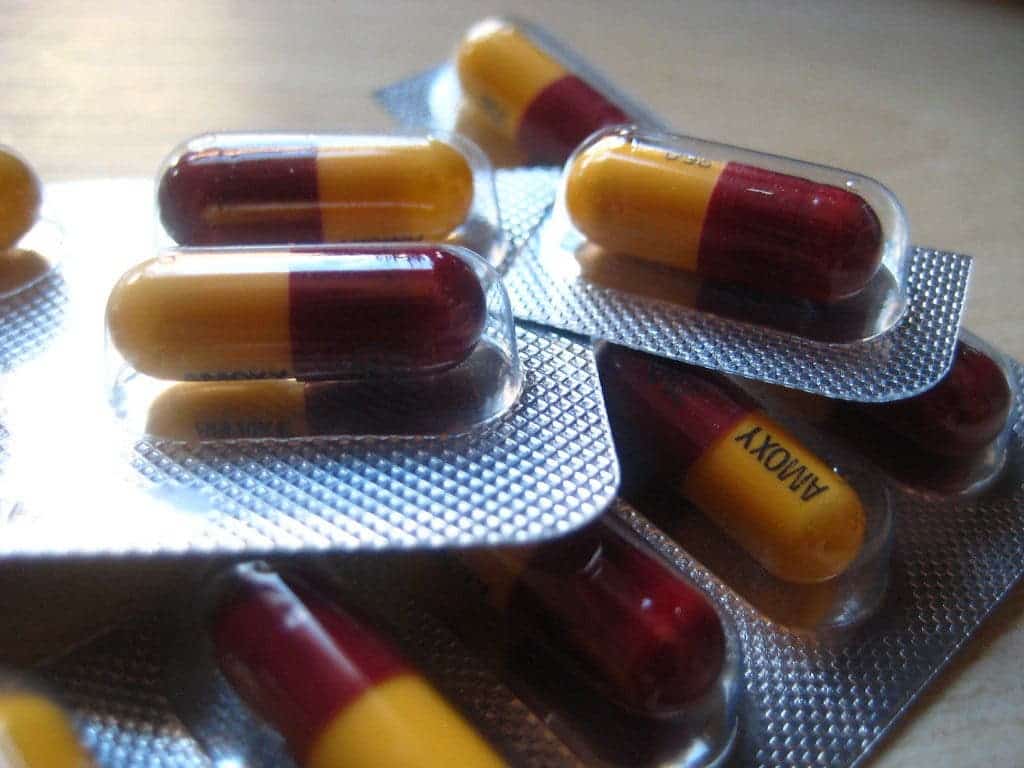A new web tool could help us find novel antibiotics that work against Gram-negative bacteria (which tend to gain antibiotic resistance). The app works by offering instructions on converting drugs that kill other bacteria into compounds that work against Gram-negative strains.

Gram-negative bacteria have an extra, outer membrane, that renders most antibiotics useless. It helps the bacteria to survive out in nature where many organisms (like fungi) naturally produce antibiotics. This would be fine except for the fact that some Gram-negative bacteria like to cause nasty infections in humans — which don’t respond to treatment and put patients at risk. In order to prove that their tool works, the team used it to modify a drug and successfully tested it against three different Gram-negative bacterial strains.
Computer, design a drug
It’s really hard to find new antibiotics for Gram-negative pathogens, because these bacteria have an extra membrane, an outer membrane, that’s very good at keeping antibiotics out,” said University of Illinois chemistry professor Paul Hergenrother, who led the research.
Hergenrother explains that no new antibiotics against Gram-negative bacteria have been approved by the Food and Drug Administration in 50 years, leaving us virtually exposed to the pathogens. His team has been hard at work finding a solution for several years now. His team “discovered the molecular features that allowed an antibiotic compound to surpass this barrier” a few years ago, he said, adding that this tool is the implementation of those findings.
The team’s app/web tool is called eNTRyway, and evaluates the potential of known drug compounds to pierce the outer membrane of Gram-negative bacteria. It also estimates whether the drug can perform this at high enough levels to accumulate inside the bacterial cells in functional doses. Even better, this app can also point out how to modify existing drugs for the task of tackling Gram-negative pathogens.
The team used eNTRyway to identify a drug that’s currently in use against Gram-positive infections that, with a little bit of tweaking, could potentially hurt Gram-negative strains. The team then synthesized the drug (by adding an amine group to the original one) and tested it on Gram-negative infections in mice. It proved effective against several different strains, the team reports, successfully accumulating behind the outer membrane of these pathogens.
The whole process took only a few weeks, Hergenrother said. The team hopes that their app will greatly speed up the development of such drugs in the future.
“We can use this tool to rapidly identify compounds that accumulate in Gram-negative bacteria,” he said.
“Keep in mind that before this, over 100 derivatives of this same compound had been made. We found them in patents and papers,” he said. “And none of these other derivatives had notable Gram-negative activity.”
The team went on to identify over 60 antibiotics that could be converted to fight Gram-negative bacteria using a variety of chemical pathways. For example, one of their newly-developed drugs (christened Debio-1452-NH3) disturbs fatty acid synthesis in bacterial cells, but not in mammalian ones.
The paper “Implementation of permeation rules leads to a FabI inhibitor with activity against Gram-negative pathogens” has been published in the journal Nature Microbiology.






